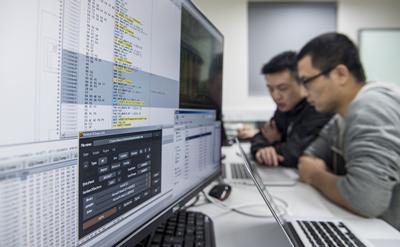Southampton awarded unique ‘double’ as Centre of Excellence in Cyber Security Research and Education

The University of Southampton has become one of the first organisations in the country to be recognised as an Academic Centre of Excellence in Cyber Security Education.
By receiving a Gold Award for Education by the National Cyber Security Centre (NCSC, which is part of GCHQ) Southampton becomes one of a handful of universities to gain recognition as a Centre of Excellence for both Cyber Security Education and Research, which the University first obtained in 2012.
The status is part of an overall UK government strategy aimed at protecting and promoting the UK in a digital world. Under the leadership of Professor Vladimiro Sassone, the University has consolidated its expertise by launching a Cyber Security Academy as well as a dedicated Research Group to serve as a hub for world-leading education and research. As a result, Southampton’s integrated undergraduate Master’s degree in Computer Science with Cyber Security has been provisionally-certified by the NCSC and the full Master’s degree in Cyber Security is now fully-certified.
Professor Sassone, Director of Southampton’s Cyber Security Research Centre and Royal Academy of Engineering Research Chair, said: “Southampton has delivered significant impact in cyber security research and education at regional, national and international levels for many years and this latest recognition by the NCSC only confirms our position as a world-leader in this very important field of study and activity.
“Very few universities in the UK – and around the world – can boast excellence in both cyber security research and education but my colleagues at Southampton, together with our many partners in academia and industry, have proven that we certainly do stand out in addressing the many cyber security threats we experience daily.”
Professor Mark E Smith, President and Vice-Chancellor of the University of Southampton, said: “I am delighted to congratulate my colleagues in who have further elevated Southampton’s status to be one of the few universities to have Gold recognition as a world-leading Academic Centre of Excellence in Cyber Security Research and Education. Their efforts over a considerable period result in Southampton’s excellent track record in this field such that we are at the forefront of developing the skills and research needed to tackle this growing threat to global security. Tackling such threats is more relevant now than at any other time in our history and it is pleasing that we are playing a leading role.”
The Cyber Security Academy at Southampton is a rare UK example of academia reaching out to industry systematically to address everything from frequent attacks on corporate and individual privacy, to the rampant rise of ransomware and more sophisticated nation-sponsored cyber campaigns.
The Centre is fully engaged in a comprehensive, industry-driven and supported research programme in collaboration with partners which to date have included the UK Defence Science and Technology Laboratory (DSTL), Northrop-Grumman, Roke Manor Research and the South East Regional Cyber Crime Unit (SEROCU), as well as governments in the UK and abroad. It also works together with the University’s Senior Management and Professional Services to improve the institution’s cyber security posture.
The Centre’s PhD, MSc and MEng level degrees, plus a growing ‘Professional Development’ programme, involves researchers from Computer Science, Economics, Engineering, Law, Management, Mathematics, Nano-Electronics, Psychology, Sociology and Web Science.
“The breadth of this research expertise demonstrates the importance which the Centre places on the human, organisational and technical aspects of the cyber security threat, as well as the interrelationships between them,” Professor Sassone explains. “We believe that a broad-based, positive engagement with companies, organisations and Government in this exciting and dynamic research environment is the most effective way to deliver a multidisciplinary cyber security message.”